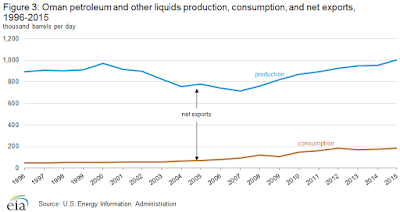Se produjo lo que muchos temian y la mayoría de las encuestadoras mas prestigiosas fallaron en pronosticar, la elección del empresario magnate por el Partido Republicano, Donald Trump como el proximo Presidente de Estados Unidos, quien asumirá el mandato el proximo 20 de enero de 2017. Y las reacciones de los mercados globales no se han hecho esperar aunque hasta ahora estos movimientos bursátiles y financieros han sido mas bien positivos y alcistas, mientras que la industria petrolera y en especial en Estados Unidos, ya se han generado especulaciones positivas sobre un nuevo resurgimiento del negocio del shale oil y gas especialmente en el estado de Texas, donde a raíz de la elección de Trump, ya se empiezan a observar movimientos importantes sobre recuperación de puestos de trabajos, aumento de la producción y nuevos descubrimientos de campos, todo ello en un ambiente prolongado de precios del crudo bajos y donde la OPEP sigue sufriendo de una importante fractura interna acusando falta de disciplina y consensos ante la próxima reunion a sostenerse a finales de noviembre para tratar de lograr un recorte de su producción global con el fin de recuperar los precios petroleros que se mantienen promediando los 48$.
 Y es que bajo su lema "Make America great again" (Hagamos America grande otra vez), y luego de haber anunciado lo que serian sus puntos principales en materia de política energética durante su administración en los próximos 4 anos, aun esperando el nombramiento de quien seria su Secretario de Energia (se están manejando nombres de politicos como el ex gobernador del estado petrolero mas importante Texas, Rick Perry, así como el empresario petrolero de Oklahoma, Michael Hamm ademas de otro politico republicano Mitt Romney), se visualiza natural que el Presidente Donald Trump de un nuevo impulso a la producción petrolera de Estados Unidos, reducir aun mas las importaciones de crudo desde países OPEP y no OPEP, reducir los subsidios e inversiones en la producción de energías renovables y verdes como la solar con un auge importante no solo en USA sino en el mundo, así como un probable impulso a la industria del carbon, de cuyos trabajadores, el candidato Trump hizo una de sus banderas cuando se encontraba en campana electoral, así como el polémico punto de sacar a Estados Unidos del Acuerdo de Cambio Climatico de Paris, lo que tendría importantes implicaciones negativas para el tema ambiental y la promoción de las energías renovables a nivel mundial, lo que Donald Trump califica como un pretexto de China para desplazar a Estados Unidos en materia industrial.
Y es que bajo su lema "Make America great again" (Hagamos America grande otra vez), y luego de haber anunciado lo que serian sus puntos principales en materia de política energética durante su administración en los próximos 4 anos, aun esperando el nombramiento de quien seria su Secretario de Energia (se están manejando nombres de politicos como el ex gobernador del estado petrolero mas importante Texas, Rick Perry, así como el empresario petrolero de Oklahoma, Michael Hamm ademas de otro politico republicano Mitt Romney), se visualiza natural que el Presidente Donald Trump de un nuevo impulso a la producción petrolera de Estados Unidos, reducir aun mas las importaciones de crudo desde países OPEP y no OPEP, reducir los subsidios e inversiones en la producción de energías renovables y verdes como la solar con un auge importante no solo en USA sino en el mundo, así como un probable impulso a la industria del carbon, de cuyos trabajadores, el candidato Trump hizo una de sus banderas cuando se encontraba en campana electoral, así como el polémico punto de sacar a Estados Unidos del Acuerdo de Cambio Climatico de Paris, lo que tendría importantes implicaciones negativas para el tema ambiental y la promoción de las energías renovables a nivel mundial, lo que Donald Trump califica como un pretexto de China para desplazar a Estados Unidos en materia industrial.
En este sentido, se puede esperar entonces que en cuanto a la relación petrolera de Estados Unidos con los principales actores como Rusia, OPEP, Iran, en materia de demanda y exportaciones sea la de mayor competencia en cuanto a un aumento exponencial de la producción petrolera y de gas en hubs importantes como Texas, Dakota, Alaska, mayor numero de exportaciones petroleras y de gas licuado desde USA a países asiáticos y europeos, una importante competencia de la producción de carbon con otro actor de peso en esta categoría como China así como con Rusia, mayor cercanía con Canada y Mexico en materia petrolera, aunque restaria por ver como sera la relación en esta materia con Rusia, país con el cual se ha asociado en varias oportunidades al presidente electo Donald Trump y su mandatario Vladimir Putin. Habra que esperar a que el presidente electo Trump asuma el poder el proximo enero y quien sera el nuevo secretario de Energia, si sera un empresario puro y duro de la industria petrolera o si mas bien Trump se decidira por un politico con capacidad de conciliar intereses empresariales con los intereses de grupos ambientales y de la colectividad en general.




























